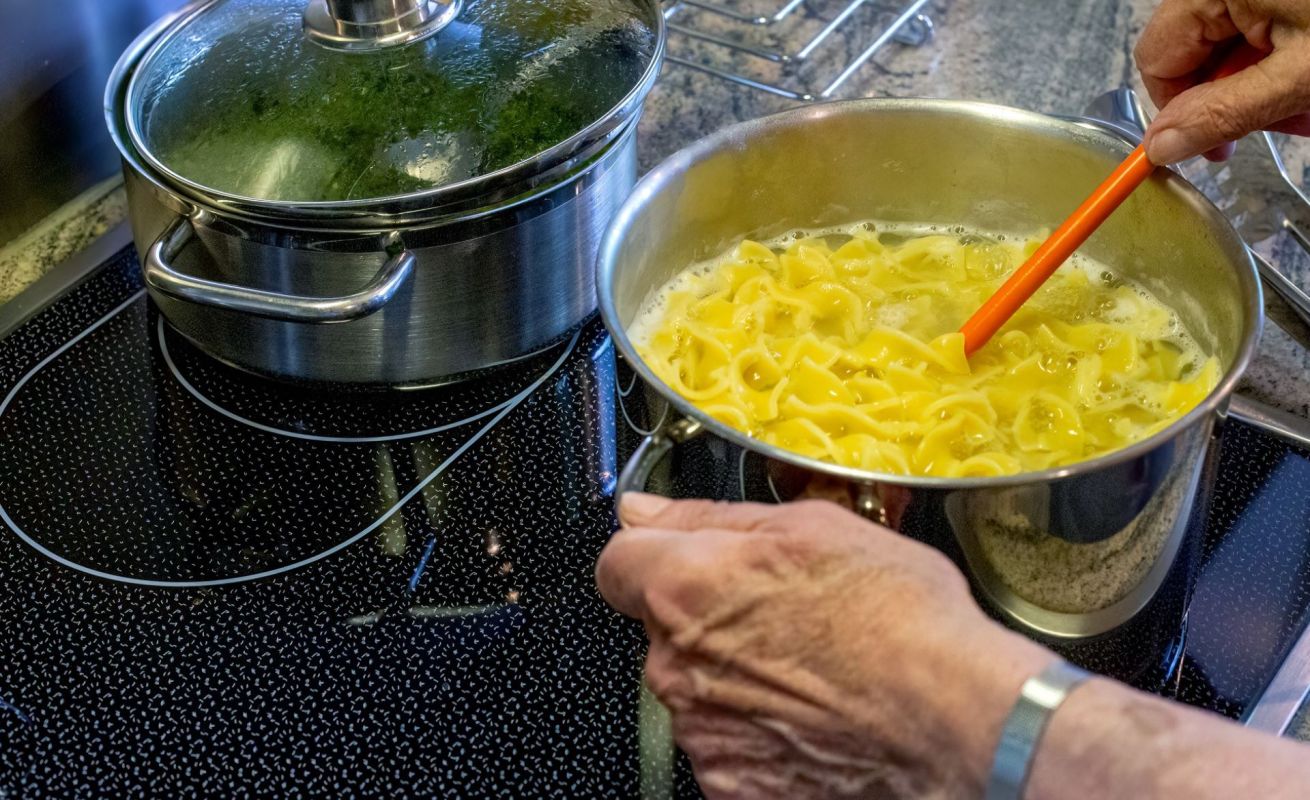With their energy efficiency, fast heating, lack of nasty fumes, and precise temperature control, induction cooktops are winning the battle of the stoves.
But what about induction stove cookware? You may have heard that not all pots and pans are compatible with the upgraded stove. Understanding what equipment you'll need for a new cooktop is crucial to getting the most out of it.
What cookware works on induction stoves?
When it comes to cookware, you'll need to make sure it's made of an "induction-ready" material, which manufacturers often include on packaging labels.
Because induction works by using energy from a magnetic field between the stove and the cookware, your equipment will need to contain "ferromagnetic materials." Basically, if the cookware is not made from a magnetic material, it probably won't work on an induction stove.
Common materials include stainless steel and cast iron. Stainless steel is a common choice, as it's durable and easy to clean. Cast iron is another favored choice, as it's durable and chic. Some aluminum cookware is another popular option, as it heats up quickly and is lightweight — but only some aluminum works on induction stoves.
Of course, when buying new pots and pans, you'll want to check their exact specifications — as not all stainless steel or aluminum pans will work.
If you want to test whether or not your cookware at home works with your new fancy cooktop, it's incredibly simple to do so. Just put the cookware close to the stove's surface and see if there's any magnetic attraction.
If there's a magnetic pull, you're in luck — it will be compatible with the stove.
🗣️ Which of these factors would most effectively motivate you to buy an induction stove?
🔘 Healthier indoor air 🏠
🔘 Superior cooking results 🍳
🔘 Helping the planet 🌎
🔘 I wouldn't buy an induction stove 🚫
🗳️ Click your choice to see results and speak your mind
Is induction worth it?
Since you may need to get new cookware for an induction stove, you might be asking yourself whether or not it's worth the investment.
But if you can afford a few new pots and pans, you'll definitely benefit from the power of induction.
Besides being the most energy-efficient option, induction ranges are also quicker to heat up when compared with both gas and electric, so you won't have to wait as long to cook your food.
Another benefit of induction is that it heats up pots and pans more evenly than traditional ranges, so your food won't burn or cook unevenly. Additionally, induction cooktops are easy to clean and maintain as long you're careful and quick about wiping them down.
Finally, swapping out gas for induction will protect your family from the dangerous fumes coming out of a stove. Reducing the amount of asthma-worsening indoor air pollution in your home is easy if you make the switch to induction.
Join our free newsletter for easy tips to save more, waste less, and help yourself while helping the planet.









